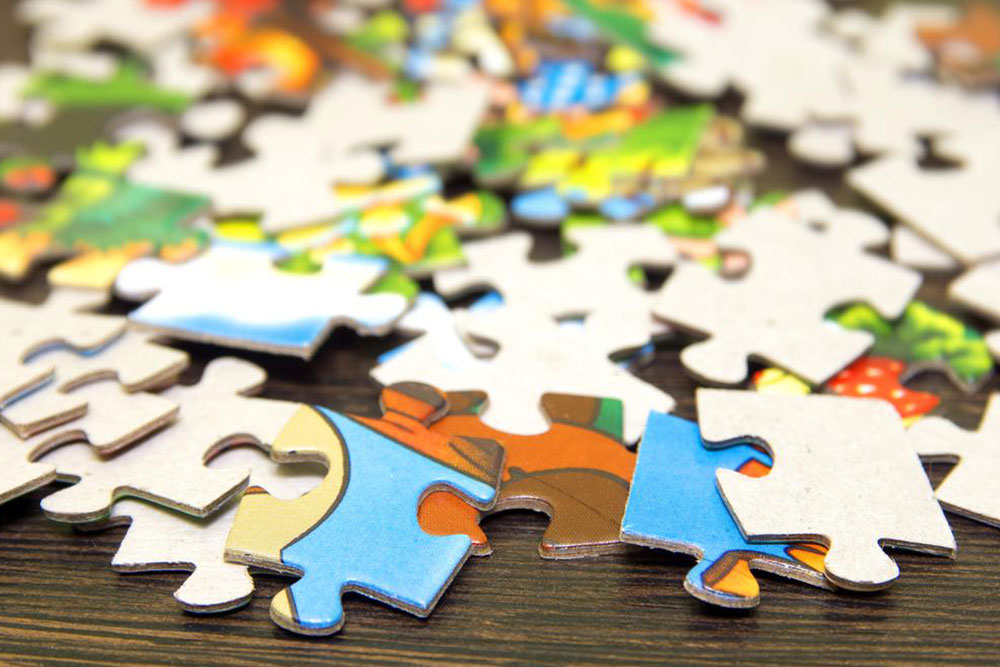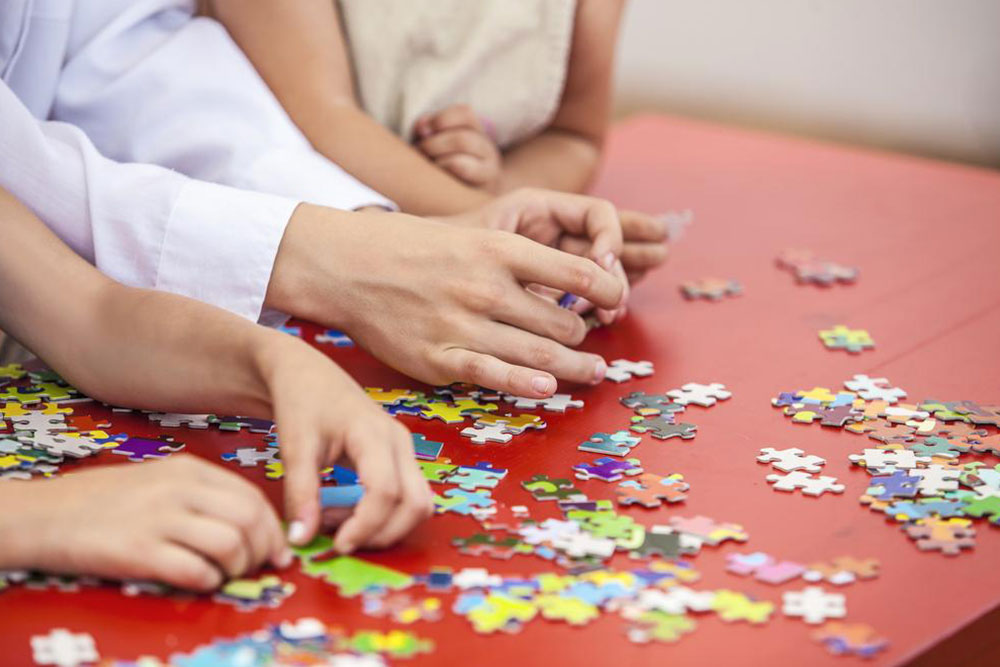A Comprehensive Guide to Various Types of Brain Teasers and Puzzles
Explore the diverse world of brain teasers and puzzles, including word, logic, pattern, cryptic, and mechanical types. Discover how these challenges enhance reasoning, memory, and strategic thinking. Learn about the history, classification, and benefits of puzzles, with insights into digital platforms that make puzzle-solving more accessible and engaging. Perfect for puzzle enthusiasts and learners aiming to boost cognitive skills, this comprehensive guide provides everything you need to dive into the fascinating realm of mental challenges and entertainment.

A Comprehensive Guide to Various Types of Brain Teasers and Puzzles
Engaging in brain teasers and puzzles is a time-honored tradition that offers numerous benefits for mental health, cognitive development, and entertainment. These activities are not only a fun pastime but also serve as excellent tools for enhancing reasoning abilities, boosting memory, improving problem-solving skills, and promoting strategic thinking. Whether you are a casual puzzle enthusiast or someone looking to sharpen your cognitive skills, understanding the different types of brain teasers can help you select the right challenges to stimulate your mind.
Historically, puzzles have captivated humans for centuries. The roots of puzzle entertainment trace back to 1760 when the British cartographer John Spilsbury created the first jigsaw puzzle. His innovative approach involved carving a map of Britain out of a wooden board, then cutting along the regional borders so that it could be reassembled like a puzzle. Since then, puzzles have evolved considerably, embracing a wide variety of formats, themes, and complexities, making them a versatile form of intellectual entertainment. Today, puzzles are available in both physical and digital formats, accessible to people of all ages and skill levels.
Understanding the different categories of puzzles can enhance your enjoyment and help you choose challenges that align with your interests and skillsets. The main types of brain teasers include construction, mechanical, logic, word, transportation, lock, folding puzzles, and more, each designed to test specific mental faculties. Here, we explore these categories in detail, offering insights into what makes each unique and how they contribute to mental agility.
Classification of Brain Teasers
Brain teasers are generally categorized based on their format, mechanics, and the skills they target. The most common classifications are as follows:
Word Puzzles
Logic Puzzles
Pattern Puzzles
Cryptic Puzzles
Mechanical and Construction Puzzles
1. Word Puzzles
Word puzzles are designed to challenge language skills, vocabulary, and verbal reasoning. They are some of the most accessible puzzles and are often used in educational settings to enhance linguistic abilities. Classic examples include crosswords, word searches, anagrams, and trivia questions. These puzzles require a good vocabulary and familiarity with language structures, and they can be both fun and educational. Word puzzles also help boost memory recall and enhance spelling and grammar skills, making them a popular choice for learners and adults alike.
2. Logic Puzzles
Logic puzzles emphasize deduction, strategic planning, and critical thinking. They often present a set of rules and constraints, challenging solvers to arrive at a solution through careful reasoning. Examples include Sudoku, nonograms, riddles, and various grid-based puzzles. These puzzles increase in difficulty as the solver advances, requiring foresight and meticulous analysis. Engaging with logic puzzles regularly can significantly improve problem-solving skills, attention to detail, and pattern recognition. They are particularly favored by those who enjoy systematic thinking and mental challenge.
3. Pattern Puzzles
Pattern puzzles are designed to identify and analyze sequences or trends. They involve logical reasoning to detect a pattern or rule governing the sequence and then use this understanding to predict subsequent elements. These puzzles are frequently encountered in IQ tests and competitive exams and are essential for developing visual-spatial reasoning skills. Examples include pattern matrices, sequence puzzles, and shape matching exercises. Successfully solving pattern puzzles enhances one's predictive and analytical abilities, which are valuable across numerous disciplines.
4. Cryptic Puzzles
Cryptic puzzles are among the most challenging brain teasers, known for their complexity and layered mechanics. They often involve wordplay, symbolism, and multiple steps to decode hidden messages or solutions. Crosswords with cryptic clues, cipher decoding puzzles, and riddles with metaphorical language fall into this category. They require not only logical reasoning but also lateral thinking, creativity, and an understanding of nuanced language cues. Cryptic puzzles appeal to experienced puzzle solvers seeking a deep mental workout and often involve multiple attempts to crack the code.
5. Mechanical and Construction Puzzles
Mechanical puzzles involve physical manipulation of objects, such as interlocking pieces, locks, and models. Examples include Rubik's Cubes, disentanglement puzzles, and metal or wooden construction kits. These puzzles develop manual dexterity, spatial reasoning, and mechanical understanding. Construction puzzles often involve building or assembling items that require patience, precision, and a good understanding of structural design. Such puzzles are popular among hobbyists, engineering enthusiasts, and children, as they combine physical activity with mental problem-solving.
Benefits of Engaging with Different Types of Puzzles
Incorporating a variety of puzzles into your routine offers numerous benefits beyond mere entertainment. These activities stimulate multiple areas of the brain, promoting overall cognitive health. Regular engagement with word puzzles sharpens language skills and improves vocabulary, while logic puzzles boost critical thinking and decision-making abilities. Pattern recognition exercises enhance visual-spatial awareness, and cryptic puzzles challenge lateral thinking and creativity. Mechanical puzzles help develop patience, manual dexterity, and spatial skills, making them ideal for hands-on learners.
Moreover, puzzles foster patience, perseverance, and focused attention. They provide a sense of achievement and boost confidence when a challenging puzzle is completed successfully. For children and adults alike, solving puzzles supports mental agility and can even help delay cognitive decline with age. Puzzles also serve as effective stress relievers, offering a constructive distraction from everyday worries, and are often used in educational, therapeutic, and team-building contexts.
The Growing Popularity of Digital Puzzles
With technological advancements, the world of puzzles has expanded into digital platforms, making brain teasers more accessible and engaging than ever before. Mobile apps, online puzzle websites, and game consoles feature thousands of puzzles across all categories, catering to various difficulty levels and interests. Digital puzzles also introduce interactive elements, hints, and adaptive difficulty settings, enhancing user experience and learning outcomes. They are particularly appealing to younger generations who prefer digital entertainment over traditional paper-based puzzles.
In addition to convenience, digital puzzles offer the benefit of instant feedback, progress tracking, and social sharing features. Many online platforms enable players to compete in timed challenges or collaborative solving sessions, adding a social dimension to mental exercises. As technology continues to evolve, we can expect even more innovative puzzle formats and AI-driven difficulty adjustments, further boosting cognitive engagement for users worldwide.
In conclusion, puzzles and brain teasers are timeless tools for stimulating the mind, enhancing mental skills, and providing entertainment. Understanding the different types of puzzles—from word and logic puzzles to cryptic codes and mechanical challenges—can enrich your problem-solving repertoire. Whether in printed form or on digital devices, engaging with puzzles regularly can lead to improved cognitive health, sharper reasoning, and greater mental resilience. Embracing a variety of puzzle types ensures a comprehensive mental workout and continuous learning.





